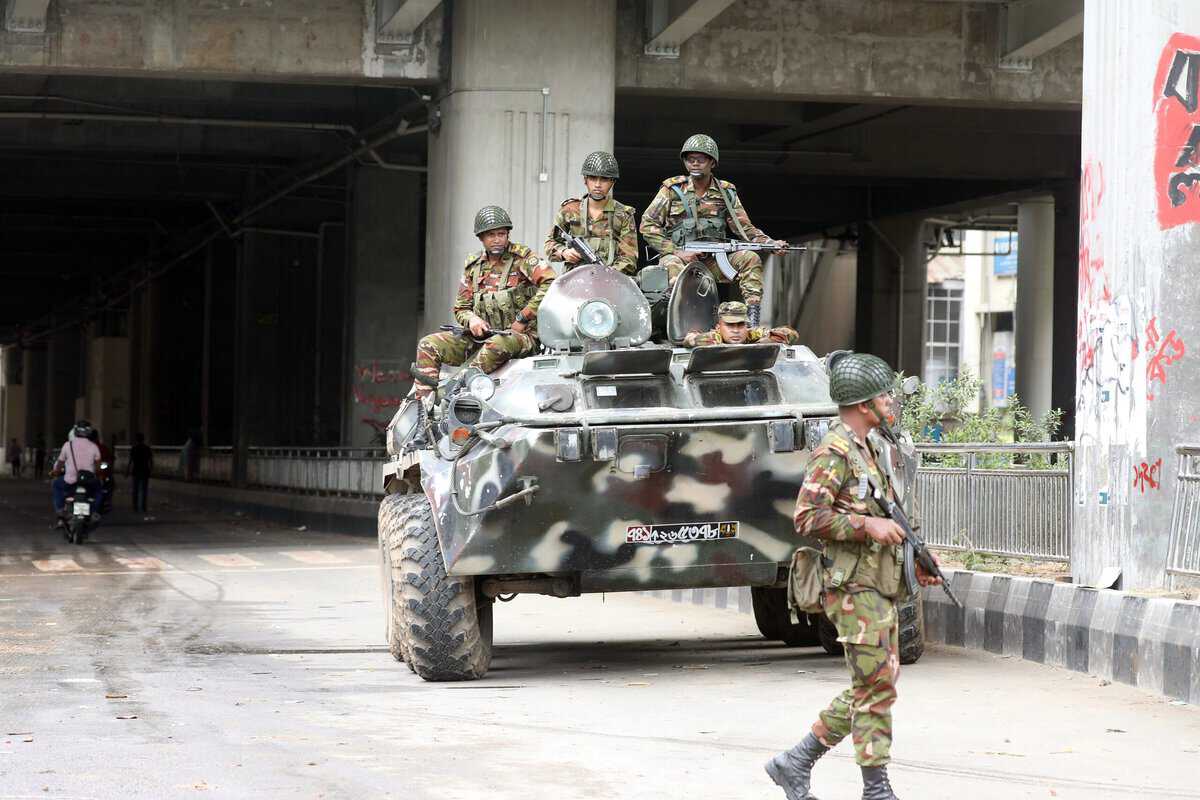
Dhaka: Software engineer Tawhidul Alam says the “historic day of August 5” is indelibly seared in his memories — the sea of humanity in the streets of Dhaka and a chain of events following unprecedented anti-government protests that have set Bangladesh’s destiny on a course of change.
The Dhaka resident recalled the chaos that prevailed in the Bangladesh capital that day from main streets to the airport which was “closed for six hours” following the fall of the Sheikh Hasina government.
“I do not have any political inclination. I just went to see the protests as a citizen of Bangladesh which was suffering. Sea of humanity in the streets of Dhaka, I have never seen such crowds in streets and marching with ‘victory’ slogans,” Alam told PTI here.
As anti-government protests reached a crescendo on August 5, Prime Minister Hasina resigned and fled the country, even as protesters termed the fall of the government and her departure a “day of victory”.
The 76-year-old embattled leader landed in India on August 5 and is currently staying there, with New Delhi earlier saying that they wanted to give time to Hasina to let her decide for herself, even as her two-week-long presence in India has given rise to multiple speculation.
Several hundreds of people have been killed in the protests in Bangladesh, triggered by the reinstatement of a quota system for the allocation of jobs in civil services, and injuries suffered in its aftermath.
Nearly 650 people have been killed in the recent unrest in Bangladesh between July 16 and August 11, the UN Human Rights Office earlier said in a preliminary report, suggesting a thorough, impartial and transparent investigation into reports of extrajudicial killings, arbitrary arrests and detentions.
Those killed include protesters, bystanders, journalists and several security forces personnel, the UNHCR report said, adding that thousands of protesters and bystanders were injured, with hospitals overwhelmed by the influx of patients.
Alam said he went to “witness the protests” as a bystander despite the risk involved in venturing out of the home.
“I knew there was a risk involved but I walked along with the long march for some time and then went back home. It was a moment of history in the making,” he recalled.
The software engineer, whose employer firm works in the tourism sector, also visited India a few days ago and returned on August 18.
“Operations are sort of normal now at the Dhaka International Airport, but pure chaos prevailed on August 5 when it was announced that the airport would be shut for six hours. My Bangladeshi friend who lives in Canada, was at the airport when the shutdown happened, so he couldn’t fly and had to return to the city,” Alam said, adding, that he rescheduled his flight and reached Vancouver a couple of days ago.
A Bangladeshi brother-sister duo, who did not wish to be named, also recently returned from India where their parents have undergone medical treatment.
“We took a flight from Dhaka to Delhi soon after the commercial operations were resumed at Dhaka airport. I think we were fortunate as both our father and mother were in India, and we had to go see them,” he said, adding their visa came through as it was a medical emergency case of their parents.
Besides Alam and the Dhaka siblings, many other Bangladeshi nationals PTI spoke to expressed similar sentiments about the happenings on August 5.
An interim government with Nobel Laureate Muhammad Yunus as the Chief Adviser was sworn in on August 8 following the dissolution of the Parliament, a decision prompted by a demand by the Anti-Discrimination Student Movement.
Mohd Shahid, who lives near Shaheed Minar — a monument dedicated to the Bengali language movement in the country — located in the Dhaka University area, says, this monument site along with Shahbagh were the hotbeds of the recent anti-government protests.
“When police firing took place, I could hear it from my house, see several thousands of people in the streets, defiant despite curfew restrictions. Those gunshots still echo in my head when I think of it,” he told PTI at Shaheed Minar on Monday night.
Md Mashrur, 21, a first-year undergraduate student of economics at Dhaka University, said, he also wanted to go out and witness the protests, but “my parents did not allow me to venture out, owing to safety concerns”.
However, an interim government is in place now, replacing the old regime, “so, I am happy” and hope that fresh elections will take place as soon as possible, he said.
